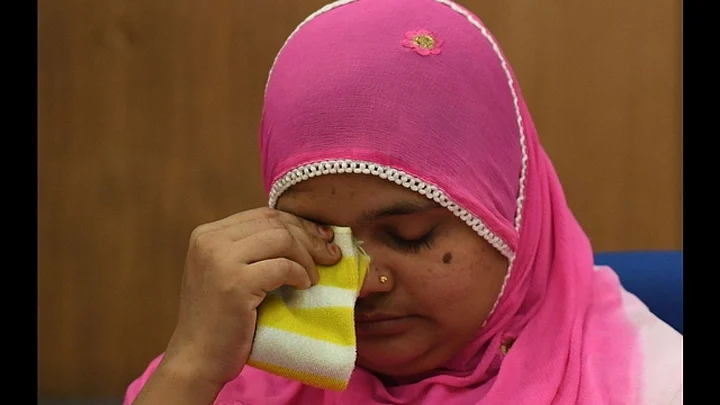The Supreme Court on Tuesday, 23 April, directed the Gujarat government to pay Rs 50 lakh as compensation to Bilkis Yakub Rasool (Bano), who was gang-raped in 2002 during the post-Godhra riots.
The apex court has also asked the state to provide her with a government job and accommodation, as per PTI.
Bano’s three-year-old daughter had also been killed during the riots.
The Gujarat government, meanwhile, informed the SC that many of the guilty officials, who tried to tamper with evidence in the case, have been stripped off their pension benefits, journalist Dhananjay Mahapatra tweeted.
The SC bench that pronounced the judgment comprised of CJI Ranjan Gogoi and Justices Deepak Gupta and Sanjiv Khanna.
Last month, the apex court had asked the Gujarat government to complete disciplinary action against erring police officials convicted by the Bombay High Court in the 2002 case.
An SC bench had said that it will hear Bano's plea seeking enhanced compensation on 23 April. Bano had refused to accept the Rs 5 lakh compensation offered by the Gujarat government.
On 4 May 2017, the Bombay High Court had convicted seven people – five policemen and two doctors – under Section 218 (not performing their duties) and Section 201 (tampering of evidence) of the Indian Penal Code (IPC).
The Bano Case
On 3 March 2002, Bano’s family was attacked by a mob at Randhikpur village near Dahod during the post-Godhra riots; 14 members of her family were killed. Bano, who was five months pregnant at the time, was gang-raped by the mob and left to die.
She had then approached the National Human Rights Commission and petitioned the Supreme Court.
The SC had then directed the CBI to take over the case and the trial started in Ahmedabad. However, after Bano expressed apprehensions that witnesses could be harmed and CBI evidence could be tampered, the Supreme Court transferred the case to Mumbai in August 2004.
In its sentence on 4 May 2017, the Bombay High Court reversed a trial court verdict of 21 January 2008 and convicted IPS officer Ramsingh Bhabhor, police personnel Narpat Singh, Idris Abdul Saiyed, Bikabhai Patel , Sombhai Gori along with Dr Arun Kumar Prasad and Dr Sangeeta Kumar Prasad for not performing their duties and tampering evidence.
The court also directed each of the convicts to pay Rs 55,000 as compensation to Bilkis Bano
Charges Against Cops And Doctors
The Bombay High Court, in its verdict, had clearly stated that it did not need any other proof to infer that cops from Limkheda Police Station in Dahod (where the case was filed) wanted to suppress the fact that Bano was raped.
The court in its verdict stated that not only did the two doctors casually conduct the post-mortem but also omitted material information from its report.
The court further noted that on observing the photographs of the deceased women it was clear that they were sexually abused before they were slaughtered.
Delay in Disciplinary Action
Meanwhile on 30 May 2017, a vacation bench of the SC refused to stay the conviction of an IPS officer Ramsingh Bhabhor stating that there is no urgency in hearing the matter as the convicted officer has already undergone the sentence.
In his plea, Bhagora, who is currently serving in Gujarat stated that if the conviction is not stayed, then he will be terminated from the service as per service rules.
On 25 November 2017 the Supreme Court granted six weeks to the Gujarat government to explain whether any disciplinary action has been initiated against policemen convicted in the 2002 Bilkis Bano gang-rape case.
The bench, however, made it clear that the apex court had already granted time, on 23 October, to the state government to apprise it of any departmental action that had been initiated or taken against police officers whose conviction was upheld in the Bilkis Bano gang-rape case.
Finally, on 12 March 2018, the SC gave the Gujarat government a final chance to file the status report on the disciplinary actions taken against the convicted cops and gave the state six more weeks to submit its reply.
(With inputs from PTI)
(At The Quint, we question everything. Play an active role in shaping our journalism by becoming a member today.)
